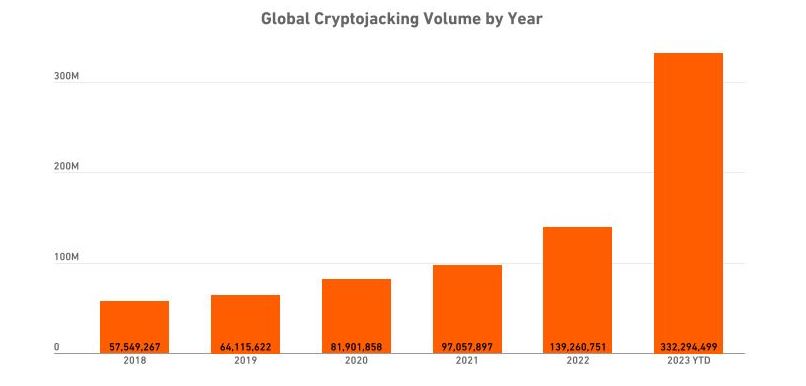One of the leading online data storage providers, Dropbox, has announced it is discontinuing its unlimited storage in its business-focused Advanced plan, claiming some of its users were using the service for resource-intensive purposes like mining cryptocurrency.
According to an official blog post on August 24, Dropbox said the decision to limit storage capacity comes following a surge in shady activities including crypto and Chia miners. Instead, the company announced that the majority of users will see a 5-terabyte cap for the highest offered plan.
Dropbox is ending its option for unlimited storage, saying it saw a surge of bad behavior after competitors also changed policies. https://t.co/oSkxrqke3V
— Bloomberg Technology (@technology) August 24, 2023
Dropbox Strategy Change Mirrors Google and Microsoft
The Dropbox team explained the reason for the change is due to creative abuse of the service, including cryptocurrency mining, resale of Dropbox storage to third parties, unrelated individuals pooling storage for personal use cases, and even instances of reselling storage. The storage provider wrote,
“In recent months, we’ve seen a surge of this behavior. We’ve observed that customers like these frequently consume thousands of times more storage than our genuine business customers.”
It added the company will gradually move current users over to the modified Advanced plan starting on November 1st. Customers will get at least a 30-day heads up before Dropbox migrates them to the new policy, adding it understands the move is “disappointing” but it would be unsustainable and difficult to enforce a list of unacceptable use cases.
Users with less than 35TB of space can maintain their plan at the same price for five years. However, for customers utilizing 35TB or more of storage per license, Dropbox would contact them within this week in order to discuss a range of options with the user.
The move seems to coincide with tech giant Microsoft’s new policy adopted last year. In December 2022, Microsoft forced new restrictions on activities like cryptocurrency mining to increase the stability of its cloud services and protect its customers. Furthermore, earlier this year, tech giant, Google also ended unlimited storage for users of its highest-tier Workspace plan.
Hackers Shift Attention to Cloud-Based Services
With cloud-based systems becoming a key component in today’s world, malicious actors have been increasingly turning to the cloud, taking advantage of weaknesses in cloud security to perform various malicious activities such as “cryptojacking.”
It is the unauthorized use of someone’s computer to mine cryptocurrency. This is typically done by installing malware on the victim’s computer that uses their processing power to mine cryptocurrency without their knowledge or consent. Cryptomining can slow down the victim’s computer and cause it to use more electricity, potentially leading to higher electricity bills for the victim.

As per a recent report from SonicWall, cryptojacking incidents increased to 332 million in 2023, compared to a meager 67 million, just a year ago, primarily targeting North America and Europe. Incidents in the United States totaled 215 million while exploits in Europe witnessed a staggering 88.3 million hits with the United Kingdom alone reporting almost 6.8 million incidents.











